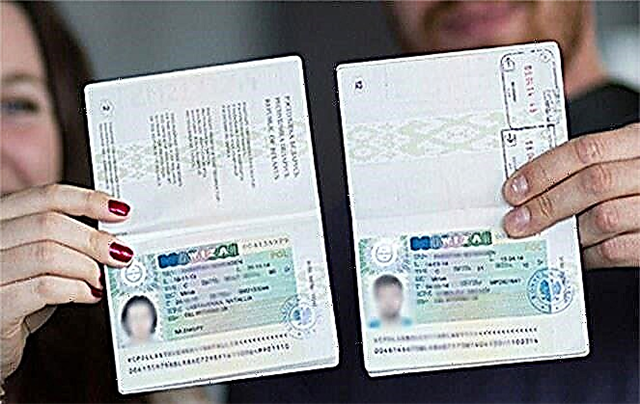Medicine is the most significant advanced practice in the world. To this day, the possibilities of curing people from diseases that are currently recognized as incurable are being explored. Thousands of people need high-quality medical care every day. Medicine in Germany is considered one of the best in Europe, since a lot of money is allocated here for the training of medical personnel. Medical education in Germany is one of the most prestigious in 2021. At the same time, training remains practically free, and 8% of the total number of places is allocated for the admission of foreigners.
Why is it worth entering the medical faculty specifically in German universities
Citizens of all countries of the world in need of medical care and high-quality medical diagnostics go to German medical centers, sparing no expense or time. This happens from year to year, because in the case of medicine, the term "German" is synonymous with quality. It is logical that doctors who were educated in Germany are also highly valued - and this is the first reason why you should choose a German medical institute for training.
However, the prestige of German higher education institutions is not the only argument in favor of a German medical school. Training to become a doctor in Germany has several advantages:
- Possibility of obtaining German citizenship. Foreign graduates of local universities are granted the right to search for work within the country within one and a half years from the date of receipt of the diploma. Official employment is a pretext for obtaining a residence permit, and after 8 years (with special achievements in integration into German society - 6 years), a foreign citizen can apply for a German passport. At the same time, compliance with a number of requirements by an immigrant will allow him not to renounce his previous citizenship.
- Free education at state universities. The education of students, including foreign ones, is fully paid for by the country's budget. The students themselves will pay exclusively the state fee in the amount of 70-300 euros. In addition, the fact of enrollment in a German university entitles you to additional privileges, such as free travel on public transport and the ability to use equipment, appliances and stationery at the expense of an educational institution.
- Availability of quotas for foreign students. Almost all universities in Germany annually allocate study places for the admission of foreign students. Each year, universities determine the size of quotas on their own, but places are always guaranteed, so 2021 was no exception. In addition, as a rule, the passing score for foreigners is lower than in the main quota.
- The opportunity to receive a good scholarship. In Germany, students, including foreigners who study hard, can compete for scholarships from various foundations. There are many of them in the country, and the requirements for candidates are different everywhere. One thing is for sure - the size of the scholarships in some cases allows the student to fully support the student's residence in the country.
- Highest quality education. In Germany, science in general and medicine in particular are at the forefront, thanks to which university graduates who have just been awarded a diploma immediately receive invitations from clinics in the country and abroad. Classes in German educational institutions are conducted by recognized specialists who love their work. Students here are the first to learn about the latest developments in the field of medicine. They are given the opportunity to use the most modern and sometimes even experimental types of equipment.
- Free study schedule. Certain lectures and seminars are compulsory for all students to attend, but in general, students in German universities draw up their study schedule on their own. At the beginning of the semester, students are given a list of works and exams that must be passed for transfer to the next semester. To be prepared, the student attends classes on a suggested schedule or as needed. Universities offer a large number of additional classes, as well as free German courses of any difficulty level.
- Opportunity to write a thesis already during your studies or continuing your studies in graduate school. Unlike students from Russian and many other universities, German students have the right to write a dissertation (laboratory, clinical, statistical) during the period of study. Since Germany does not have a Ph.D. degree, a graduate can simultaneously obtain both a medical diploma and a doctorate in medical sciences.
- High salary of a doctor. The salary of a doctor who is just receiving a specialization (in our opinion, a resident) in the first year of work is approximately 3,000 euros per month after taxes. A doctor who has already received a specialization (Facharzt) will earn at least 5,000 euros - the final salary depends on the city in which the clinic is located. For example, in Stuttgart, doctors receive 7,420 euros per month. Doctors, including dentists, ranked first in terms of salary among university graduates according to a survey of the German salary market (data provided by Stepstone in 2021).
- Good attitude of Germans towards foreign citizens. The people of Germany do not judge people by nationality. Moreover, Germans are proud to help foreigners - many of our compatriots even consider such attention excessive. But you can be sure that there will be no career restrictions and manifestations of ill will in relation to foreigners.
The state carefully monitors the quality of medical education in German universities, and therefore the value of medical graduates never diminishes.
Please take a sociological survey!
Study structure at German medical universities
The program of study in medical specialties of German universities involves the passage of the following stages:
| Stage of the learning process | Description |
|---|---|
| Preclinical stage / Vor Klinische Semester (1-4 semesters) | The beginning of studies at universities in Germany falls on the winter. In the first semester, a student of the Faculty of Medicine acquires knowledge in the field of fundamental humanities, medical and natural sciences. Already at this stage, students acquire the skills of caring for patients and providing first (emergency) medical care. The knowledge gained is immediately applied in practice, and therefore well absorbed. Before completing this stage, it is necessary to undergo an internship in caring for patients in a German clinic or hospital (the duration of the internship is 3 months), as well as several short practices in various departments of the hospital or a course in first aid (2 days). During a specified period of time, students are taught physics, biology, chemistry, anatomy, physiology, medical terminology, biochemistry, histology, and medical psychology. |
| First state exam / 1. Staatsexamen | At the end of the preclinical stage, students' knowledge is checked during the first state exam. Successful completion opens the way to the program of clinical stages of education. |
| Clinical stage / Klinische Semester (5-10 semesters): ● the first clinical stage (5-6 semesters); ● second clinical stage (7-10 semesters). | At this stage, students are engaged in the study of natural science and clinical disciplines in general pathology and methods of laboratory and medical examination of the patient. The student's task is to gain knowledge of clinical disciplines, study the algorithm for making a diagnosis, and gain insight into the development of a treatment plan. Also, during these semesters, the student will be taught practical skills at the patient's bedside. At the end of the course, the student is able to adequately assess the patient's condition. At this stage, practice is carried out in those disciplines that were studied during the preclinical stage. During the first clinical stage, the following disciplines are taught: general pathology, microbiology and immunology, biomathematics, clinical chemistry and hematology, radiology, general pharmacology and toxicology, pathophysiology, genetics, history of medicine, microbiology, general clinical examination (includes basic information on pediatrics, neurology, otolaryngology, ophthalmology, dermatology, surgery, therapy). At the second clinical stage, the following are studied: general medicine, pharmacology, orthopedics, obstetrics and gynecology, emergency medicine, psychiatry, environmental and hygienic disciplines. Also, practice is carried out in the disciplines passed during the first clinical stage. To be admitted to practice, the student must obtain a certificate of regular attendance at preparatory lectures. |
| One year of practice / Praktikum | Students, at their discretion, can complete an equivalent practice (internship) in another country. At this stage, it is planned to undergo interrelated clinical and practical training at a university clinic or in any of the clinical hospitals. The purpose of passing this stage is to practice the skills and knowledge that have been accumulated throughout the training period, in relation to each clinical case. Practical activities of students will be carried out under the supervision and guidance of a supervising physician. At this stage, the student will be on duty at the ambulance, as well as participate in clinical discussions (conferences). Students cannot be involved in activities that are not related to the deepening of knowledge in the field of medicine. |
| Second state exam / 2. Staatsexamen | At the end of the internship, students of German medical universities take a second state exam. Successful delivery of it precedes the issuance of a doctor's diploma with the right to carry out labor activities in the specialty. From this point on, you can start looking for a job in Germany or abroad. |
How to apply to a medical university in Germany
Enrollment in German universities occurs twice a year: in the spring (before the start of the summer semester) and in the fall (before the start of the winter semester). At the same time, the beginning at the preclinical stage is possible only in the winter (autumn) semester.
Students of schools and universities interested in admission to the medical faculty of a German university or to a medical college, first of all, learn about the requirements of the admissions committee for foreign applicants.
Most of the questions arise from those who have completed several courses at a Russian educational institution.
Among the applicants, there are also students - holders of a certificate confirming that they have successfully completed medical courses in an educational institution in Russia or Europe. Such applicants for admission usually count on some kind of admission benefits. Let's find out on what conditions German universities accept foreigners to study.
Entrance exams
As with most American and European universities, there are no entrance exams in German universities. In this regard, the selection of students is influenced only by the average score in the school certificate (or grade book) and the ability to confirm the level of German language proficiency, sufficient for mastering the material of lectures and seminars.
Applicants must meet the following requirements for direct admission to the medical faculty of a German university:
- The presence of a certificate of completion of two semesters (1 year) of training in the medical educational field - for applicants who have been in school for 11 years.
- The presence of a certificate of completion of four semesters (2 years) in the medical specialty - for candidates for admission who have been in school for 10 years.
- Availability of a university graduation diploma - for students who studied a non-medical specialty at a university.
- Knowledge of the German language at the B1 level - for all foreign applicants.
If a foreign applicant for a study place does not meet the conditions for direct admission to a German university, you need to undergo training:
- take a language course in German if the level of language proficiency is insufficient;
- enter the university through Studienkolleg, if you do not have the necessary length of study at the university;
- passing both preliminary stages (language course + admission through studienkolleg) if both criteria for selection of students do not meet.
How to enter a university in Germany with low marks
If an applicant during the period of study for some reason had low marks, but he is sure that he will be able to master the program of the medical faculty of a German university, it is recommended to take the TMS test - Test für Medizinische Studiengänge - a test for students of medicine. In case of successful passing of the test, its results will be counted instead of the average score of the certificate or diploma.
Also, applicants with low grades can enter Studienkolleg - a college of pre-university training. After graduation, the admissions committee of the university will take into account the grades received there, and not in Russian schools or universities.
In addition, in the future, it will be easier to understand the teachers, since studying at studienkolleg is also a language practice. It should be borne in mind that admission to a studienkolleg involves passing an additional test (in mathematics, for example).
Before entering studienkolleg, it is recommended to pass the TestAS - a standardized non-language exam for foreigners intending to enter a university in Germany and Europe.
This testing is focused on determining the applicant's ability to learn in the field of his choice, as well as assessing the cognitive characteristics. The management of some universities may also require passing this test, so obtaining a certificate will not be superfluous - its presence will increase the chances of admission.
Often, applicants who have passed the TestAS exam realize that another specialty, not related to medicine, is more suitable for them. If at the same time there is a persistent desire to go to study in Germany, we recommend that you pay attention to German educational institutions of a different profile.
Check out our resource “Education Opportunities for Foreigners in Germany”.

Competition for admission
Not only school graduates want to enter German universities, but also students, and those who are just starting their studies in Russian universities and already graduating from the university, and therefore there are not many places left when compared with the number of applicants for admission. On average, about 40,000 applicants apply for 9,000 places in the medical faculties of German universities every year.
In this regard, admissions committees annually establish new criteria and conditions for the selection of students worthy of receiving a prestigious education at a university in Germany. The candidate must be responsible, purposeful - the best evidence of interest in diligent training in the profession of a doctor is a certificate or diploma with excellent grades.
Those 8% of study places that are allocated specifically for the admission of foreigners to the university are intended exclusively for applicants from outside the European Union. Therefore, the competition for enrollment for Russian students may be slightly lower than for the Germans themselves.
Required level of proficiency in German
To enter a university in Germany, you must prove your excellent knowledge of the German language. To do this, before admission, you must obtain a certificate of successful completion (usually, language knowledge at level B1 is sufficient) of one of the language exams:
- TestDaF - Test Deutsch als Fremdsprache - exam for foreigners who want to confirm their knowledge of the German language;
- DSH - Deutsche Sprachprüfung für den Hochschulzugang - exam, the results of which will indicate the proficiency of German at the level from B2 to C1.
The following certificates are also accepted for consideration in almost all higher education institutions in Germany:
- ZOP / C2 - Zentrale Oberstufenprüfung - certificate of the “Central examination of the highest level” ZOP, certificate C2 - Goethe-Zertifikat C2 of the Goethe Institute;
- KDS - Kleines Deutsches Sprachdiplom - “Small German Language Diploma”;
- GDS - Großes Deutsches Sprachdiplom - "Great German Language Diploma";
- DSD - Deutsches Sprachdiplom is a German language proficiency diploma established by the Conference of the Ministers of Education and Culture of the German Federal States.
After the reform of higher education in Germany, the most prestigious universities introduced entrance examinations and a competition for medical faculties. Full information about the conditions of enrollment is presented on the official websites of educational institutions.
Cost and terms of training
Education in Germany is free. That is, in fact, the cost of German higher education is about 40,000 euros per year, but it is paid not at the expense of the students themselves, but from the country's budget. Students only have to pay semester fees twice a year: from 70 to 300 euros for 6 months, depending on the federal state.
The payment of these amounts is beneficial for the student himself - the money will be used to pay for a travel card that allows free use of any types of public transport within the borders of the land on which the university is located for six months. If you had to pay for travel on a general basis, 100 euros would only be enough for a month.
Despite the fact that studying in Germany is free, international students must prove the availability of funds for housing and meals in order to obtain a study visa. To do this, you need to open a blocked account (Sperrkonto) with a German bank. The deposited amount is blocked and the student is limited to withdrawals of no more than 720 euros per month (the minimum subsistence level in Germany). To register a blocked account, we recommend using the Coracle website.
Instead of opening a bank account, you can ask for a surety from a German citizen or a person with permanent residence in the country. If a DAAD scholarship is received, this will be sufficient, since there will be enough funds to cover all expenses.
The duration of study at the medical faculty of a German university is more than 6 years. In total, for all years, training lasts at least 5,500 hours. Typically, students need more than the specified minimum time limit to pursue a medical specialty.
The fact is that it is difficult to determine the duration of study due to the specifics of the organization of the educational process - a student has the opportunity to sign up for an exam when he is confident in his knowledge and feels that he is able to pass the test. That is, there are no strict deadlines for the exam, students are not rushed here.
In this regard, it will be possible to make judgments about how much to study as a doctor in Germany only in relation to each specific foreign student, depending on his ability to quickly assimilate educational information.
But even if a student receives an unsatisfactory mark on the exam, he will not be expelled from the educational institution - he will have the opportunity to prepare better and take the test later.
The maximum period during which you can study at a university in Germany is 10 years.
Many German students spend this amount of time studying, since being a student in Germany is beneficial due to the provision of a number of benefits to young people.
Therefore, ideal conditions have been created for Russian students: the Germans will not blame them for long preparation for exams. Here, the extension of training is considered the norm, since special attention is paid not to the speed of graduation, but to the possibility of becoming a high-level specialist.
German Scholarships and Grants for International Students
No scholarships are paid to students at German universities. However, on the territory of Germany, there are many non-state and even party funds involved in scholarship payments. Among them are foundations that provide financial support not only to students, but also to graduate students.
 The conditions for obtaining a scholarship, its size and payment terms are established by the organizations themselves, providing the opportunity to participate in the competition. As a rule, a scholarship can be awarded when transferring to the third year of the most gifted and diligent students.
The conditions for obtaining a scholarship, its size and payment terms are established by the organizations themselves, providing the opportunity to participate in the competition. As a rule, a scholarship can be awarded when transferring to the third year of the most gifted and diligent students.
The size of the German National Scholarship is about 300 euros per month, but the amount paid can be much more significant, depending on the source of funding. For example, the value of the DAAD (German Academic Exchange Service) scholarship is calculated in such a way that the recipient has enough money for living. That is, the amount is the cost of living.
Most often, foreign students apply for:
- Scholarships from the Heinrich Böll Foundation for active students interested in the development of civil society with high academic achievements;
- Bayer Scholarships for Students and Graduates with Research Interests and High Academic Performance;
- Humboldt Research Fellowship for young scientists from abroad to conduct research for a duration of six months to 2 years.
You can find detailed information about the current scholarship programs in Germany, the requirements for medical students of a German university applying for a scholarship, as well as sources of funding for payments, you can find in our overview of scholarships and grants in Germany.
List of universities where you can study medicine
There are 35 public and 4 private medical universities / faculties in Germany. The list of medical universities recognized as the best in terms of teaching and learning conditions includes:
- University of Heidelberg (Universität Heidelberg) - the medical faculty of this German university is recognized as the most prestigious in the country, it studies modern methods of treating nervous ailments and cardiovascular diseases, as well as the leading areas of oncology (1/5 of the students are foreigners).
- The Technical University of Dresden (Technische Universität Dresden) is one of the leading universities where you can deeply study medicine and dentistry (10% of students are foreigners).
- The Technical University of Aachen (RWTH Aachen) is the best choice for those who wish to become an excellent speech therapist.
- Medical Faculty of the University of Berlin (Freie Universität Berlin) - here is the famous Charite clinic, in which students practice (1/6 of the students are foreigners).
The table below lists the top 10 universities in Germany (ranked in the country) in which to study the medical profession:
| Country / International Ranking | Name | Training program | Town | Financial aid / hostel |
|---|---|---|---|---|
| January 1, 1940 | Munich Technical University (Technische Universität München, TU München, TUM) | * (H) | Munich | yes, I have |
| February 1, 1941 | University of Heidelberg (Ruprecht-Karls-Universität Heidelberg) | * (H / Z) | Heidelberg | yes, I have |
| March 1, 1950 | University of Munich (Ludwig-Maximilians-Universität München (LMU)) | * (H / Z / T) | Munich | no no |
| 4/113 | University of Freiburg (Albert-Ludwigs-Universität Freiburg) | * (H / Z) | Freiburg | no no |
| 5/131 | University of Göttingen (Georg-August-Universität) | * (H / Z) | Göttingen | yes, I have |
| 6/151 | University of Bonn (Rheinische Friedrich-Wilhelms-Universität Bonn) | * (H / Z) | Bonn | no no |
| 7/157 | University of Tübingen (Eberhard Karls Universität Tübingen) | * (H / Z) | Tubingen | Not really |
| 8/168 | University of Frankfurt (Johann Wolfgang Goethe-Universität Frankfurt am Main) | * (H / Z) | Frankfurt am Main | yes, I have |
| 9/170 | Rhine-Westphalian Technical University of Aachen (Rheinisch-Westfälische Technische Hochschule Aachen, RWTH) | * (H / Z) | Aachen | Not really |
| 10/177 | Westphalische Wilhelma-Universität | * (H / Z) | Munster | yes, I have |
* H - Humanmedizin - this university offers the General Medicine program.
Z - Zahnmedizin - this university offers the Dentistry program.
T - Tiermedizin - this university offers the Veterinary Medicine program.
In each of the mentioned universities (institutes), international exchange programs are carried out. The conditions for distance education have been created at the Technical University of Munich and at the University of Freiburg.
Common questions
Consider the answers to the questions that are most often asked by school graduates and university students planning to enter the medical faculty at one of the universities in Germany.
Is it possible to get medical education in Germany in English?
The leadership of German medical universities considers attracting foreign students to study an important aspect of the exchange of knowledge, ideas and experience between countries. Therefore, universities are doing everything possible to ensure that students from other countries have the opportunity to freely obtain education and study the disciplines necessary for mastering the profession of a doctor.
Students can choose between studying exclusively in English and in combination with the German language - this approach will be useful for those who are looking for work in clinics in Germany.
It should be borne in mind that not every university offers an English-language course. This opportunity is available for students who have chosen the following higher educational institutions:
- Christian-Albrechts-Universität Kiel (Christian Albrecht University in Kiel);
- Universitätmedizin Berlin Charite (University of Berlin);
- Otto-von-Guericke-Universität Magdeburg (Otto von Guericke University of Magdeburg);
- Ludwig-Maximilians-Universität München (Ludwig Maximilians University in Munich).
There is also a limited selection of study programs in French, Italian, Spanish and other languages.
A complete list of German universities offering training in English, English language proficiency requirements, and other useful information is available in our detailed overview of studying in Germany in English.
What are the grades in the school certificate for admission to the Faculty of Medicine at the University of Germany?
Due to the fact that universities in Germany do not organize entrance exams, foreign applicants are assessed according to the average score of the school certificate - it must be at least 4.5.
A similar requirement is imposed on graduates of Russian universities who are ready to submit a diploma (if training has been completed) or a certificate (if education has not been completed).
Is it possible to transfer to a German university from a Russian university?
Students of Russian universities who have completed their studies or have not yet received a diploma can apply for admission to a German university, provided they meet the general requirements for foreign applicants. Such students can be accepted not for the initial stage of education, but for the next - higher one.
That is, in fact, such an admission procedure can be called “transfer” to a German university. You can transfer only from 2-3 courses of the university of the country of permanent residence. The university commission will judge the possibility of admission to the university of the candidate according to the correspondence of the previously passed subjects and the number of hours to the requirements of the chosen study program of the German educational institution.
If a candidate for enrollment has completed 1-2 courses, he can only be accepted for 1 course. If you have completed 3 courses in the direction of pharmacy, psychotherapy or medicine, you can apply to the central office of Germany with a request to confirm the diploma and enter a higher semester. There is no possibility to be enrolled in a master's program - medical education in Germany is not divided into bachelor's and master's degrees.
Since German universities do not have the usual concept of “course”, transfer to a university is not a transition, for example, from the 3rd year of a Russian university to the 4th year of German. The translation will be carried out in 2 stages:
- the student enters the chosen university in Germany, and after admission asks to take into account the subjects passed at the Russian university;
- the university's management decides to shorten the total period of study or to approve a less intensive study schedule, based on the number of credited disciplines.
If the university in which the foreign student previously studied does not have state accreditation, or the student's grades are unsatisfactory, you can consider the option of admission to a German university on a general basis, as if the enrollment was made at the end of school.
How to apply for a higher semester?
In order for a student wishing to be enrolled in a German university to enter a higher semester, it is necessary to send documents for confirmation to Germany.
Previously, the documents were checked centrally in Dusseldorf, but now the papers are checked by the department for the recognition of medical studies abroad of the federal state on the territory of which the university is located.
What does Numerus Clausus mean?
If, when choosing a university in Germany, a student meets the phrase Numerus Clausus, this means that the enrollment for the chosen specialty is limited. As a rule, Numerus Clausus belongs to medical faculties. The central office for the allocation of training places in Dortmund is responsible for the provision of such places.
Can international students work while studying?
As such, there is an employment opportunity for German university students. The law allows students to earn extra money for no more than 120 full days (or 240 part-time) per year.
However, in practice, the combination of work and study negatively affects the educational process and the student's well-being. Medical education, and even when studying disciplines in a foreign language, requires complete dedication and daily attention. Of course, many students would like to provide for themselves during their studies on their own, but a deep study of the profession is possible only with full immersion in the educational process.
Conclusion
After receiving a diploma from a German university, foreign graduates are eligible to pursue a job search in Germany. To this end, they are given the opportunity to extend their residence permit in the country for 1.5 years.
Graduates try to find a job on their own and without anyone's help, but finding a job with a prestigious diploma is not difficult. Often, immediately after graduation, offers begin to come from clinics in Germany and Europe.
After defending the dissertation, the student of the Faculty of Medicine begins to be called the doctor, and since then the prefix Dr. Med. is assigned to him for life. The holder of a doctoral degree is called a doctor so that those around him know who they are dealing with.
It is worth noting that any doctor, both newly acquired a specialty and opening a private clinic, is a respected person in Germany. The German society trusts doctors, values and protects them. Any German citizen will be proud to befriend a doctor.











